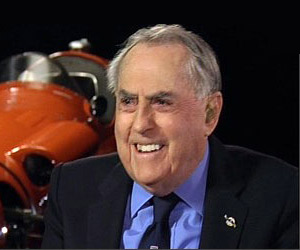Jack Brabham holds the distinction of being the only
driver to become champion in a car of his own make. Both an expert
engineer and driver, he won three F1 world championships. He became the
first Formula 1 driver to receive a knighthood, for his contribution to
the sport which included nurturing young drivers and supporting the
business side.
Birth
Jack Arthur Brabham was born on 2 April 1926 in Hurstville, a commuter
town in vicinity of Sydney, Australia.
Early Life
From an early age, Brabham was interested in cars and mechanics. He
learnt driving at the age of 12. He joined technical college where he
learnt technical drawing. At the age of 15, he joined a local garage and
joined an evening course in mechanical engineering. Then he entered into
his own business of purchasing and selling his own motorbikes. He also
served as the flight mechanic Royal Australian Air Force towards the end
of the Second World War.
Racing Career
Once, Brabham went to see midget car racing with a friend. Midget racing
is a type of race category where small open-wheeled cars compete on dirt
ovals. On the suggestion of his friend, Jack Brabham agreed to build a
racing car. Gradually his interest in driving increased. When he won a
race, he knew that he had the knack of driving. In self-made midgets he
was victorious in four successive Australian championships and was the
1953 hillclimb champion in a British-built Cooper-Bristol. After midget
driving for some time, Brabham became interested in road racing. From
1953 he focussed on road racing, in which drivers compete on closed
tarmac circuits.
Brabham arrived in Europe in early 1955. He had a meeting with Charles
Cooper, constructors of his successful Australian car. This developed
into a partnership that made big marks in the history of Formula One.
Brabham persuaded the Coopers to take the rear-engine route into Formula
One racing. He also built up his first chassis in Cooper's workshop.
This was in an era when the competition was dominated by big,
front-engined Italian and German roadsters. Brabham had victories in
Monaco and Britain together with his consistently high placings. This
resulted in his winning a drivers' title. In 1960, he was the dominating
driver in the nine-race series, winning consecutively in Holland,
Belgium, France, Britain and Portugal, bagging his second consecutive
championship.
Season 1961 was unproductive for Brabham. Thereafter he decided to leave
Cooper and form Motor Racing Developments, in partnership with Ron
Tauranac, the talented Australian designer. His team tasted success in
several categories of racing, particularly Formula Two. Brabham Formula
One car appeared late in 1962. Brabham personally worked hard to perfect
the chassis set-up and fine-tune the Climax engines. Brabham's team mate
Dan Gurney won in France and Mexico, making him proud.
The new 3-litre formula came into effect in 1966. Brabham, in
collaboration with Australian company Repco, developed a car on this
configuration. In a car of his own make, he won the Dutch Grand Prix and
attained the same feat in France, Britain and Germany. He won in
notoriously difficult and dangerous Nurburgring, a victory he considered
the best in his career.
Brabham's final victory came in the 1970 South African Grand Prix at the
age of 44. Thereafter, he retired as a driver and returned to Australia.
Recognising his contribution to British motosport, the title of Sir was
conferred on him in 1985.
Jack Brabham is the only Formula 1 driver to
become champion in a car of his own make. Here is a glance on the F1
career of Jack Brabham.
Jack Brabham
